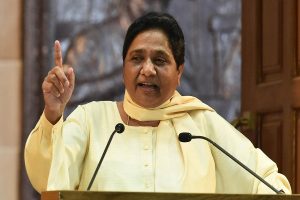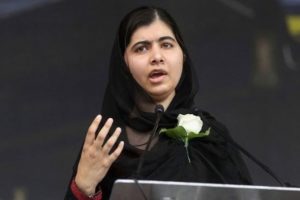From Rice Christians to Roti Hindus, as it were? That ought to be the fear among progressive forces within the Hindu community in light of the Yogi Adityanath-led BJP government in Uttar Pradesh on Tuesday approving a draft ordinance aimed at preventing forced religious conversions.
For, unlike proselytising Abrahamic religions, the Indic dharmic tradition comprises an eclectic bunch of believers and non-believers, the animists and the ritualistic. Indeed, religion is a misnomer when applied to the beliefs of the Hindu/Indic community which are varied even though this singular, unique tradition certainly has an overarching cohesiveness which those who have swallowed whole the knowledge claims of Western social sciences tend to mock.
Advertisement
The proposed law would also ~ critics suspect primarily ~ deal with what is known nowadays as ‘love jihad’. To be clear, the ordinance does not mention the term ‘love jihad’. The ordinance is titled ‘Vidhi Virudh Dharmantaran 2020’ and is aimed at preventing individuals from converting people of one faith to another by way of enticement, threat and/or misrepresentation.
Justice Aditya Mittal, the Chairman of the state Law Commission, iterated: “The term ‘love jihad’ has not been used in the Bill. Conversions related to all religions will be covered under the new law. It will not just be focused on HinduMuslim conversions or conversions for the specific purpose of marriage.”
The ordinance provides for a jail term of up to 10 years for anyone found guilty and encourages inter-religious marriages to be registered under the Special Marriage Act. Debates in the Constituent Assembly had brought out the disagreements and varying approaches towards ensuring coercion of any description had no place in an individual’s choice of faith.
The Constitution in Article 25, however, enshrined the right to freedom of religion giving citizens the right to profess, practice and propagate their faith. But the essential contradiction between the right to propagate one’s religion, which is latched upon by those who would add to their flock, and the desire to prevent allurement and intimidation in an unequal societal power structure from coming into play in deciding one’s faith, remained unresolved.
While there has been a clamour for a nationwide anti-conversion law since 1947, various states have enacted their own laws though implementation remains patchy and controversial.
To that extent, the proposed Uttar Pradesh law is no different. But as in all things in life, intentionality is the key. The fact is that the UP administration has made no secret of its intention to prevent what is called love jihad, the term used to target interfaith marriages in which Muslim men are accused of conspiring to turn Hindu women away from their faith and insisting they convert to Islam post-marriage.
The Church in Kerala has expressed similar views. Allahabad High Court, however, has held it essentially doesn’t matter whether a conversion is valid; the right of consenting adults to live together in matrimony cannot be encroached upon by the State. The jury of the people is still out.











